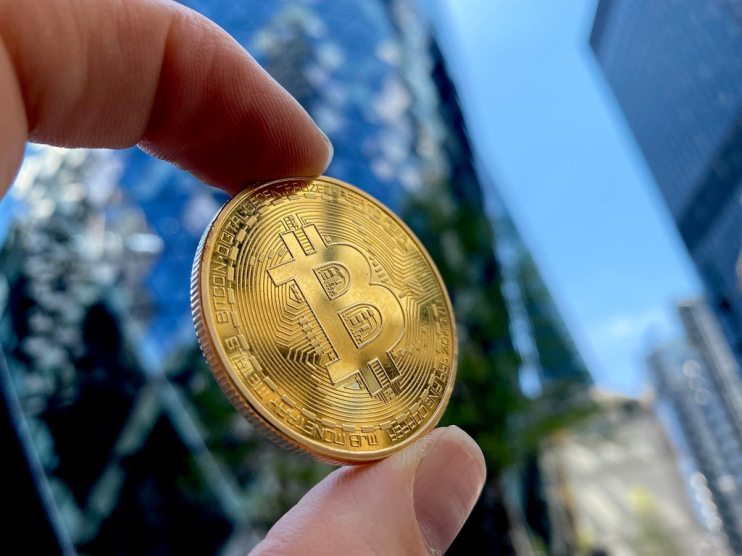
What you need to know about buying bitcoin

If you don’t know your bitcoin from your blockchain, this article is here to help.
Is there a bitcoin barrier to entry? For many curious investors who have yet to dip their toes in the proverbial waters, the biggest thing holding them back may be summed up in one word: knowledge.
The more you try to wrap your brain around the technology behind bitcoin, the more confused you may be about its actual investment value. How exactly is bitcoin mined? What is a hard fork? And proof of stake vs proof of concept? Head scratchers abound.
If we haven’t lost you yet — good! While you may never master the concepts of blockchain and how cryptocurrency is created, in reality, you don’t need to when it comes to investing. All you really need to know is why cryptocurrency has value, how that value compares to traditional currencies, and what investing means in the long run.
On platforms like eToro, users can deposit as little as $50 to fund an account, where they can buy, sell, and hold bitcoin, along with over thirty other cryptoassets.
So what makes crypto different from investing in traditional currency, like the Euro or the US dollar? Here are a few key distinctions.
How many bitcoins are there?
One of the big issues with investing in the US dollar is inflation, which has been made increasingly evident during the COVID-19 pandemic. As the US dollar weakens at a more rapid rate, with trillions printed by the Federal Reserve, it is no surprise that investors will look for unique ways to diversify their money.
How does inflation affect bitcoin? In the current context, it doesn’t. That is because bitcoin has a finite amount of 21 million coins, so while the value can increase, the maximum amount in circulation cannot. Currently, there are 18.7 million bitcoin in circulation, meaning there are still some left to be mined. As a result, many investors look to bitcoin as a hedge against the damaging effects of inflation.
Bitcoin as a store of value
Bitcoin’s finite supply lends to its store of value over time. While gold was the original intrinsic asset, its cumbersome nature led to it being replaced by fiat (i.e., paper) money. A store of value, meanwhile, is an asset that maintains its worth and can be exchanged in the future with no deteriorating value, which cannot be safely said for current physical currency.
Bitcoin, meanwhile, checks all of the major boxes as a strong store of value over time. It has a steady level of scarcity thanks to its finite supply, it is easily divisible (up to eight decimal points), it has growing use as a utility (i.e., form of currency) in transactions, it is easily transportable through digital wallets, it is durable as a non-physical currency, and it is nearly impossible to counterfeit thanks to blockchain encryption technology.
Is bitcoin becoming more mainstream?
The problem with bitcoin’s value in the past was that it was mostly driven by retail investment, which ebbed and flowed based on how consumer investors felt about the crypto’s future. In recent months especially, however, major players in tech and financial sectors have either plunked money into bitcoin or adopted the currency on their platforms.
Companies like MicroStrategy, Square, and Tesla have invested huge chunks of capital in bitcoin, while both traditional (Visa, MasterCard) and modern (PayPal) financial institutions are starting to integrate crypto as a feasible form of currency. The more bitcoin becomes mainstream, the more legitimate it becomes as a long-term investment.
This communication is for information and education purposes only and should not be taken as investment advice, a personal recommendation, or an offer of, or solicitation to buy or sell, any financial instruments. This material has been prepared without taking into account any particular recipient’s investment objectives or financial situation, and has not been prepared in accordance with the legal and regulatory requirements to promote independent research. Any references to past or future performance of a financial instrument, index or a packaged investment product are not, and should not be taken as, a reliable indicator of future results. eToro makes no representation and assumes no liability as to the accuracy or completeness of the content of this publication.
Cryptoasset investing is unregulated in some EU countries and the UK. No consumer protection. Your capital is at risk.